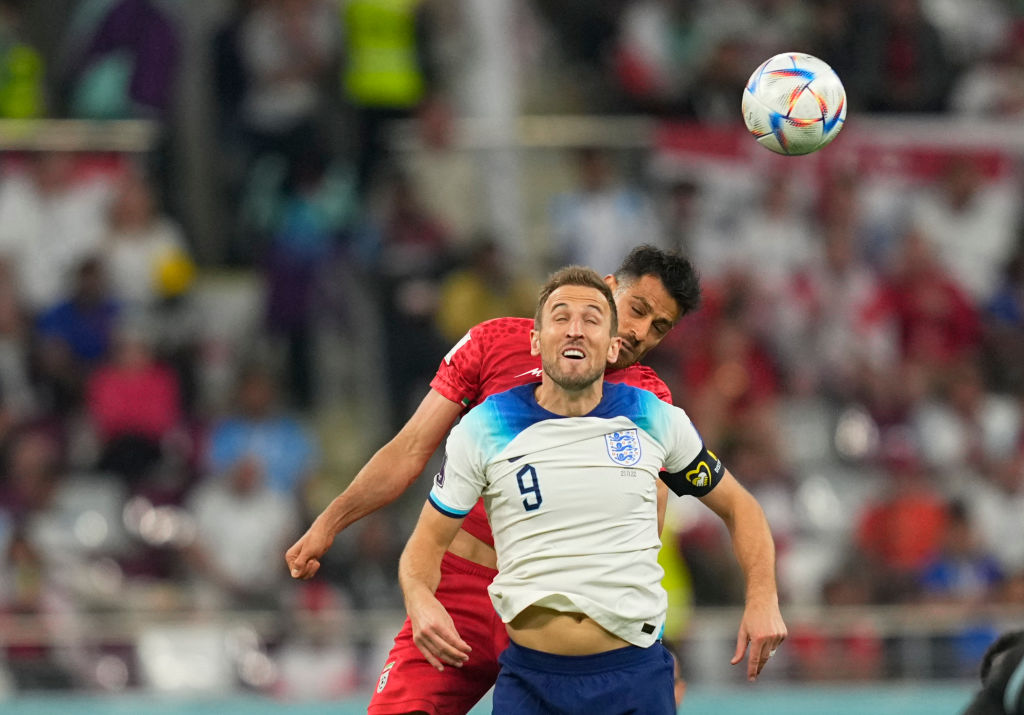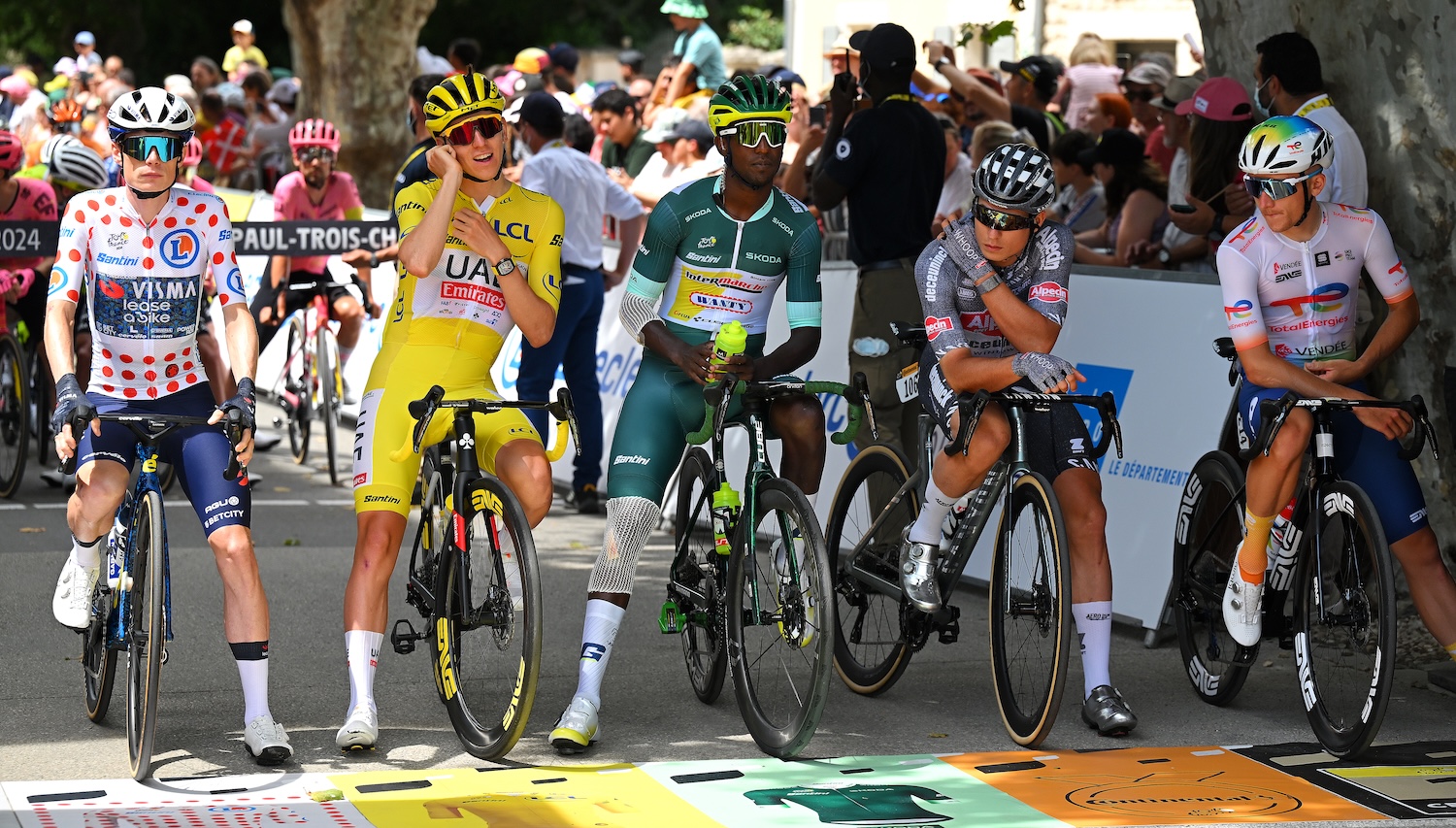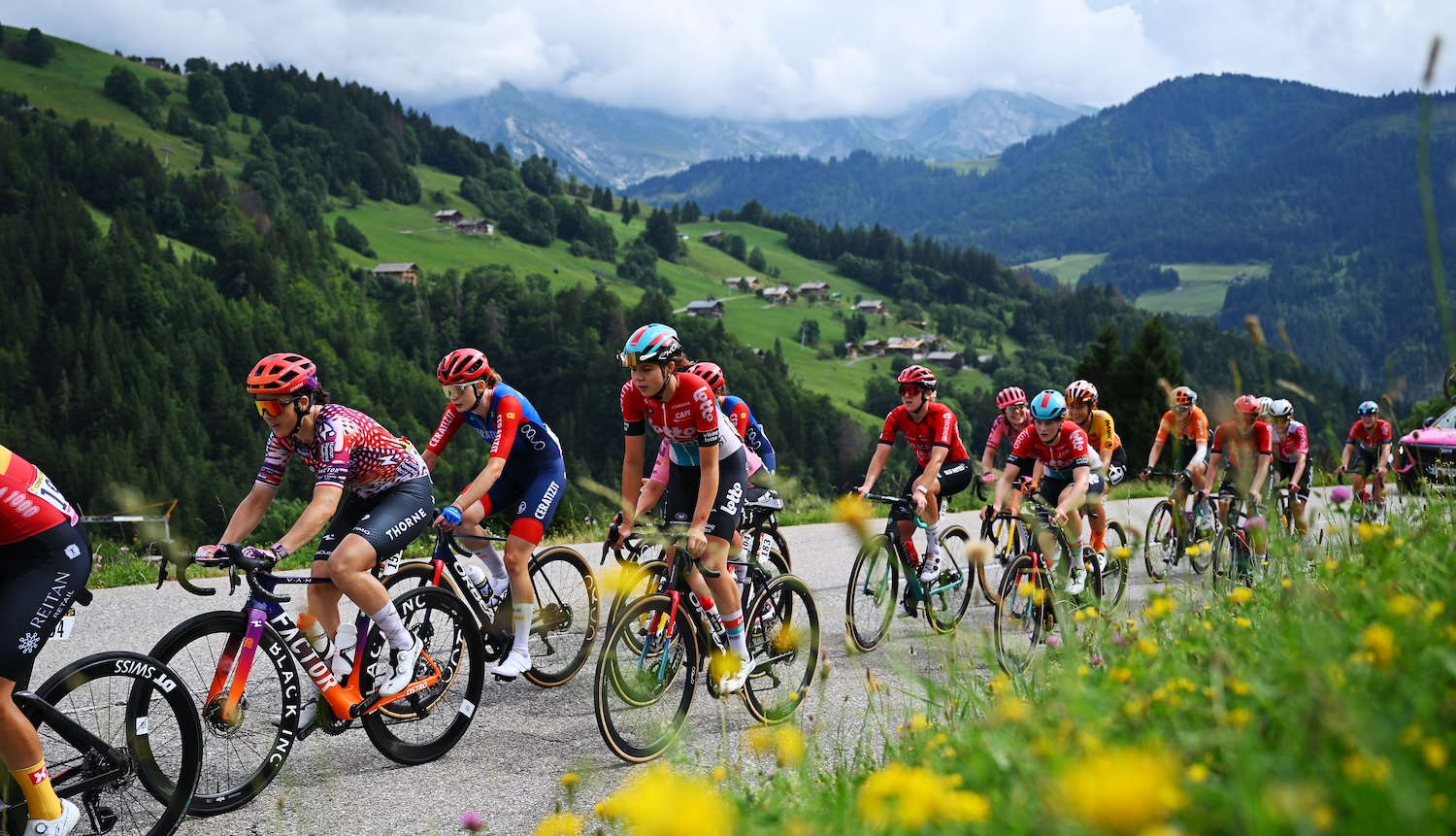Coming into the tournament, the feeling was that England absolutely could win the World Cup, had all the ingredients to do so, but wasn't particularly likely to because of its poor recent form. It made for a bad combination: tons of talent, high expectations, and little belief that the talent was being maximized to reach those expectations.
But tournaments are short, and form is temporary. It doesn't take much to clear the stale air of disappointment and doubt with a big gust of excitement and confidence. And as far as statements of intent go, England demolishing Iran 6–2 is just about the strongest message they could've sent to announce that the Three Lions are for real.
If you were to imagine the perfect England performance, it would look a lot like Monday's win. The foundation of their ideal game is what they do with the ball. They can hold it patiently, keeping control of the pace of the game by dictating whether the ball moves slow or fast. (England had nearly 80 percent possession.) They can dominate you out wide with both wingers and fullbacks, and they excel at creating chances through the air with wide crosses in open play and on set pieces. (The English attack mainly flowed through Bukayo Saka, who scored twice. Also, four of England's six goals were set up by crosses.) They can punish you centrally with the power and precision of midfielders Jude Bellingham and Declan Rice, and with the touch and faultless guidance of Harry Kane. The striker had two assists, and the old-man herky-jerky dribble plus the pinpoint cross he appended to it on the Raheem Sterling goal was quintessential Kane, a perfect encapsulation of how his technique and intelligence allows him to be such a destabilizing force even without overwhelming physical powers. For his part, Bellingham added one goal and two hockey assists, and the teenager's !!! energy, confidence, limitless skill set, and pitch-warping physicality had an effect on the match that was something like that which is communicated when Superman poses with his chest out and his fists on his hips.
A couple defensive lapses meant the Three Lions gave up two meaningless consolation goals, neither of which made any impact on the overall feeling of English rule. Surely the challenge will grow against teams better able to directly challenge England rather than just letting them run roughshod, and a single group-stage performance, no matter how impressive, doesn't win you a World Cup. But the English had been questioned for months, and their first answer was resoundingly positive. England was the World Cup's first real contender to play, and they made clear that they are considered contenders for good reason.
But for all that England's outing said to the rest of "the world," it felt for much of the day that The World itself spoke much louder. I woke up early Monday morning to get ready for the game. Rather than obsessing about the lineups and who was or wasn't going to be on the pitch pregame, I found myself thinking much more about what those players would or would not be wearing. That's because, just hours before England-Iran kicked off, the soccer federations of several European national teams that had planned to wear the One Love rainbow armband as a well-meaning but impotent gesture in defiance of Qatar's anti-gay laws announced that they would not in fact be wearing the armband, after FIFA threatened to punish any player who wore it with an automatic yellow card. And Qatar's war on rainbows wasn't just relegated to what the players wore, either. American soccer journalist Grant Wahl recounted how he was denied stadium admission and detained by security for 25 minutes because of the scary pastels on the t-shirt he wore to cover U.S. vs. Wales. England's win over Iran was impressive, but it paled in comparison with Qatar and FIFA's comprehensive victory over bright colors.
Free to read: What happened when Qatar World Cup security detained me for 25 minutes for wearing a t-shirt supporting LGBTQ rights, forcibly took my phone and angrily demanded that I remove my t-shirt to enter the stadium. (I refused.) Story: https://t.co/JKpXXETDkH pic.twitter.com/HEjr0xzxU5
— Subscribe to GrantWahl.com (@GrantWahl) November 21, 2022
It was a bummer all around—depressing that the state of protest at this World Cup is such that a multicolored armband with an anodyne slogan had gained such urgency and moral weight; depressing that FIFA and Qatar are so intransigent and petty that they'd go to the mattresses over it rather than simply shrug it off as the futile gesture it would've been; depressing that the European players and federations in question would completely and immediately fold in response to FIFA's threat; depressing that these players—big and important cultural figures, certainly, but also workers on the site of the most important job of their lives—are the ones on whom the obligation has fallen to register even a modicum of resistance to forces way bigger than them. It is too much to ask an athlete to risk their livelihoods and possibly even their lives (word to Brittney Griner) to stand against an evil like Qatar, especially when it is so clear they would be doing so alone. It's just that oftentimes history is made by those who assume such undue burdens nonetheless.
The smothered gay rights protest wasn't the only example of the noise of the real world droning out the sporting world on Monday. During the pregame festivities, Iran's players stood silently while their national anthem played. This was reportedly a pointed choice, meant to register the team's support for the roiling protest movement back home targeting Iran's culture of misogyny. Inside the stadium, many pro-protest Iranians booed the anthem. The day before, Iran captain Ehsan Hajsafi spoke eloquently about what it meant to him and his team to be representing Iran at such a tumultuous moment in time.
"We have to accept the conditions in our country are not right and our people are not happy," Hajsafi said. "We are here but it does not mean we should not be their voice or we must not respect them. Whatever we have is from them. We have to fight. We have to perform and score some goals to present the brave people of Iran with a result. I hope conditions change as to the expectations of the people." The bravery of Hajasfi and his Iranian teammates stood in stark contrast to the would-be armband wearers.
Following this World Cup has been a little odd so far. None of it feels right. It doesn't feel right that, through the windows that surround my TV, I watch snowflakes fall during the opening match of what has always been a summer tournament. It doesn't feel right that the entire soccer calendar was changed for this World Cup and yet the temperatures in Qatar are still so hot that players seemed to be pulling up with cramps every other minute in the second half of USA vs. Wales. (So much for those revolutionary air conditioners Qatar promised to develop as part of its original World Cup bid.) It doesn't feel right that we've known for a decade that Qatar acquired this tournament in illicit fashion, and yet here it is happening anyway. It doesn't feel right that you can't even sit down in front of a tantalizing match like the one between England and Iran without thinking about how the tournament's real winners, up in their perches in the stadiums' VIP lounges, have already been crowned.
Nothing about the Qatar World Cup feels right. And the only thing that would feel more wrong is if FIFA and Qatar had somehow succeeded in masking all the shit surrounding the tournament so that people only noticed the fun and games and goals. The World Cup is what it is because of how it can transcend mundane, vulgar reality with the power of genius and joy. It'll take a lot of genius and joy for this World Cup to transcend FIFA and Qatar's obscene realities, but hopefully it doesn't transcend so much that anyone loses sight of how we got here and what it really means.







